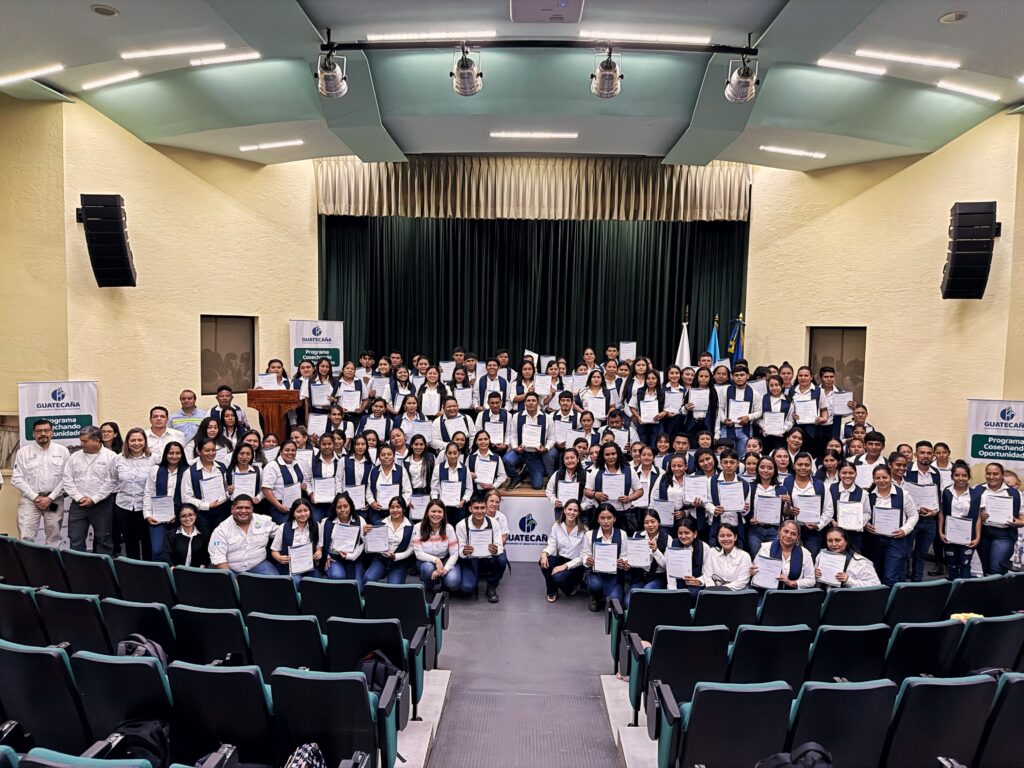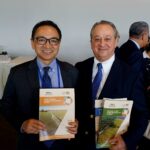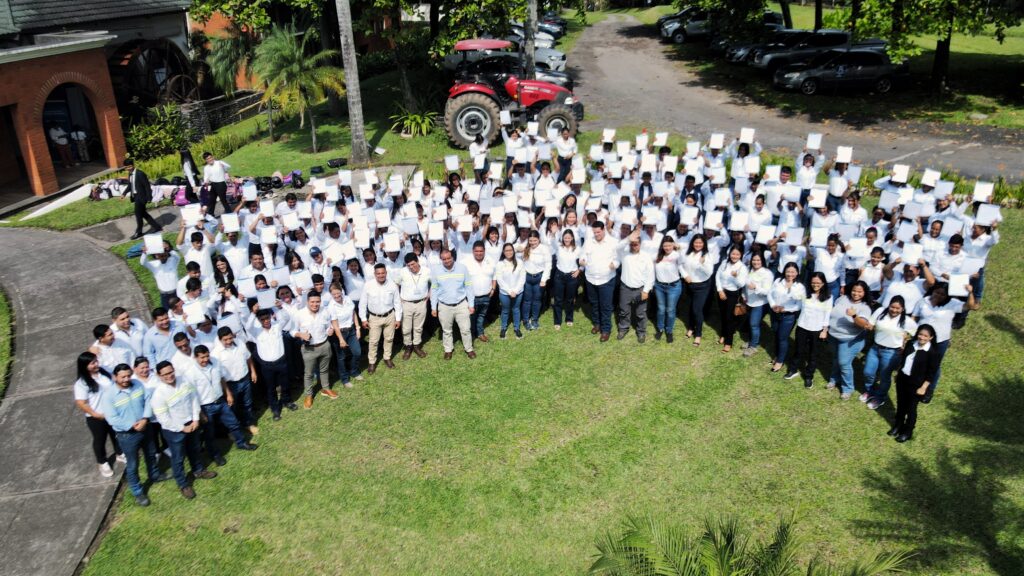
Guatecaña held a graduation ceremony for 127 young people—101 women and 26 men—who completed training as agricultural tractor operators through the Harvesting Opportunities scholarship program, under the Technical Training Schools chapter. This initiative aims to facilitate access to technical education for youth in the Southern region of Guatemala, equipping them with the skills and competencies needed for successful entry into the labor market and contributing to the development of the country.
Over the course of three months, participants received technical and entrepreneurial training, providing them with the tools to access decent employment and build a sustainable future in the agro-industrial sector. The program included entrepreneurship and basic business management, an introduction to agricultural tractors, agricultural driving techniques using a simulator and field practice, as well as calibration and operation of agricultural implements.
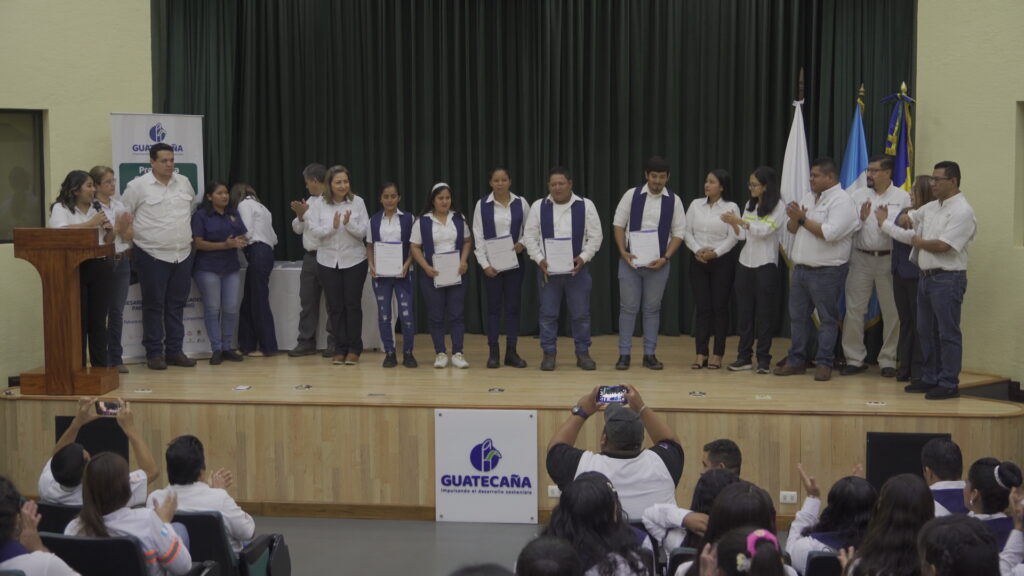
The Harvesting Opportunities program, funded by the Guatemalan sugar mills, has provided professional technical training to more than 2,800 young people through scholarships for studies at the Technical Training Institute (Intecap) and the University of the Valley of Guatemala (UVG). Each year, a new scholarship call is launched.
“At Guatecaña, we believe that creating opportunities is sowing the future. This graduation represents much more than technical training: it is an investment in the sustainable development of our communities and has a positive impact on the lives of hundreds of families in Guatemala,” commented Andrea Bolaños, Sustainability Manager of the Guatemalan Sugar Producers Association (Asazgua).
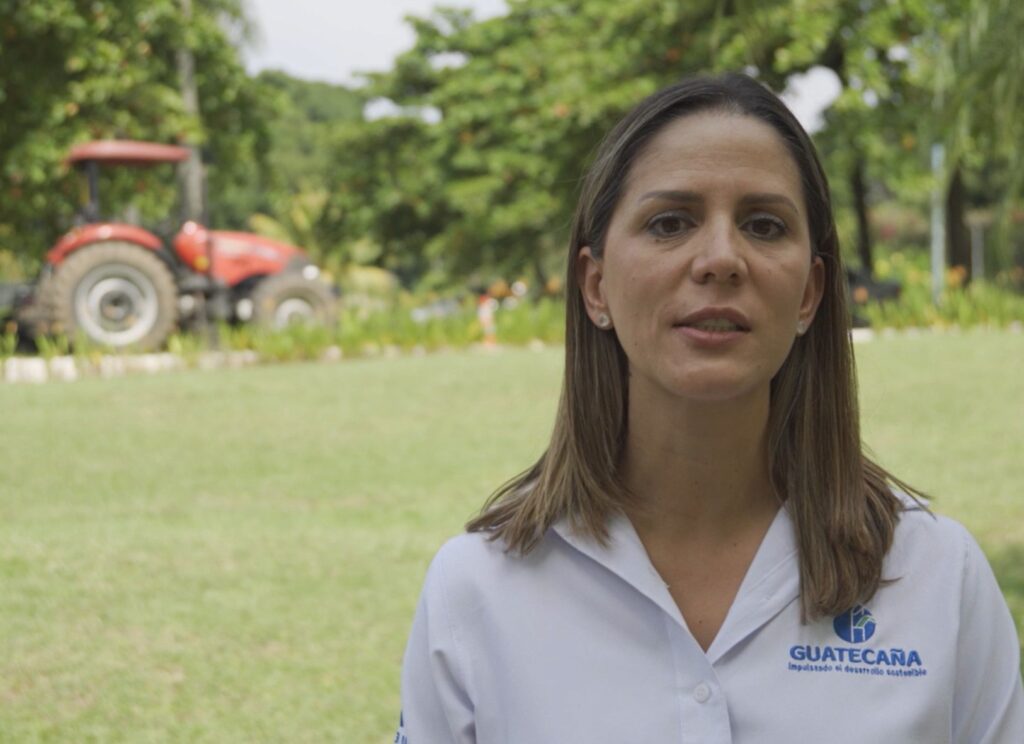
At the end of the event, the young participants took part in a Job Fair, where sugar mills that are part of Guatecaña provided application forms for available positions.
This training and job fair not only reinforce technical knowledge but also promote economic autonomy, youth leadership, and equal opportunities by actively integrating women into agricultural spaces traditionally dominated by men.
